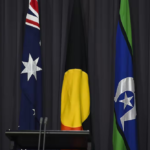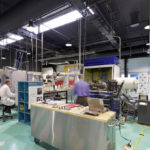Has innovation finally turned a corner in Australia?
The economic zeitgeist in favour of innovation is being supported at the highest levels of government. David Coleman is optimistic that Australia is creating the right conditions for innovation to flourish.
It is no secret that Australia has long been overly reliant on a commodity based economy. The entire economic history of Australia has involved relying on mining and agriculture for exports. It seems that the collapse of commodity prices in recent times and the end of the mining boom has led to the realisation that a new direction for Australia’s economy is needed.
In the state capitals of Melbourne and Sydney, livelihoods have depended on the service sectors of banking, insurance, property, construction, education and tourism. Despite the history of reliance on commodities, Australia has been the source of a number of major innovations in the past like wifi, aircraft black box recorders, microsurgery, the Cochlear implant, CPAP machines, IVF embryo freezing, Grey-scale ultrasound and x-ray crystallography, to name a few. However, it seems that if we are to keep up with the rest of the world’s break neck speed of innvoation, we need a fundamental shift in our economic culture which must be supported by government policy to create the right conditions for innovation to flourish.
Prime Minister Malcolm Turnbull made it clear in the infancy of his Prime Ministership that he wanted an innovation culture in Australia to flourish. In his victory speech, he said that disruption is Australia’s friend. As a man who owes the bulk of his wealth to the sale of Ozemail, Australia’s first email provider and as the former Minister for Communications overseeing the development of the National Broadband Network, Mr Turnbull’s ascension to the Prime Ministership bids auspiciously for a new culture of innovation in Australia. It is particularly encouraging that we now appear to have a pro-innovation Prime Minister when we think back to the recent days of Tony Abbott’s clanging anachronistic pronouncements that ‘fax machines are our future’ and that coal is a ‘foundation of prosperity’ with a ‘big future’.
At the local level in New South Wales, Premier Mike Baird has expressed a long overdue and sorely needed new commitment to innovation in Sydney. In an attempt to bring Sydney into the 21st century along with the world’s other global cities, the Premier has announced that the government will support a new innovation hub on the site of a derelict coal fired power station spanning the Glebe Island, Rozelle and White Bay areas of Sydney. The site is to be dubbed ‘Silicon Harbour’ presumably designed to give it a particularly Sydney signature style on innovation. There are already many innovation hubs around the world, the most famous being San Francisco’s Silicon Valley. Other centres which have evolved include East London’s Silicon Roundabout, Dublin in Ireland, Eindhoven in the Netherlands, Pune and Mumbai in India, Tel Aviv in Israel, Hong Kong and Malmo in Sweden. These hubs seem to display a mixture of proximity to universities, cheap rent and access to quality IT infrastructure. The new site has been criticised by Atlassian, the biggest Australian home grown startup because the rents on the new site will be loaded with a premium for harbour views. It has been suggested that a better choice would have been a revitalisation of the Australian Technology Park in Redfern because of its proximity to universities and cheaper rents. Despite the criticisms, the innovation community appears to be generally supportive of the announcement.
Encouragingly, it seems that that Australian economic zeitgeist in favour of innovation is being supported at the highest levels of government. It remains to be seen if the rhetoric can be turned into reality but given Australia’s history of innovation, I think there is every reason to be optimistic.
David Coleman is a lawyer practising in Sydney Australia.













